share on
Data shows that 81% of employees are looking for a new job, employers are willing to raise salaries and give bonuses in 2022 to retain talent, and more.
After more than two-and-a-half years of global disruption, the world is getting back on its feet and seeing revival across sectors. However, companies are still struggling with talent scarcity, therefore, how to cater to employees’ needs and retain them is still imperative for every business and HR leader.
In light of that, the recently-launched 2022 Hays Asia Salary Guide, shares market insight and salary trends across five Asian markets, i.e. China, Hong Kong SAR, Japan, Malaysia, and Singapore, to help employers make better talent strategies.
The online survey was conducted from October to November 2021 with a representative sample of 9,598 respondents from China (3,329), Hong Kong SAR (1,120), Japan (1,388), Malaysia (2,385), and Singapore (1,376).
Here’re some of the key highlights and sector-specific salary details.
Hiring activities increase while job satisfaction decreases
Employees are less satisfied with their current job, with 81% of respondents either actively looking for a new job or being open to opportunities this year. Compensation and career development are the two biggest reasons driving people to think of leaving their companies.
At the same time, organisations are planning to hire more, with 69% of respondents predicting an increase in business activity levels in 2022, and more than half expecting staff levels to rise in the next 12 months. This is in line with the reported reduction of hiring freezes, especially significant in Hong Kong SAR, Malaysia, and Singapore.


READ MORE: One crucial factor driving the Great Resignation that HR leaders are missing
Salary expectations vary between employees and employers
Despite the uncertainty and disruption in the last year, the compensation of skilled professionals in Asia did not seem to be impacted much. The percentage of respondents who reported getting a pay cut stayed level compared to 2020 and 2021, as did those who reported receiving their bonus. Moreover, employers also reported there were more raises given in 2021 compared to the year prior.
Employers also have a positive attitude towards employees' compensation and benefits this year. In the face of a fierce talent war, employers are willing to raise salaries, which largely remains within the range of 3-6%. Moreover, 87% of employers said they will be giving bonuses in 2022.
On the other hand, 80% of employees are expecting a salary increase, and nearly one in every four are anticipating an increase greater than 10%. However, of the 37% of employees who asked for a raise in 2021, only slightly over two-thirds were successful.

Upskilling and reskilling are top of mind
Employers across the region are highly focusing on critical hard skills, i.e. technical, analytical, and project skills, when hiring permanent staff. For soft skills, communication skills, problem solving skills, and teamwork rank unanimously the top three.
When it comes to contract or temporary staff, most employers are hiring to meet peaks in demand, therefore, administrative skills and technical skills such as programming languages, design programmes, and mechanical equipment or tools were the most highly valued.
Across Asia, people tended to prioritise developing soft skills over hard skills, with most (37%) spending one to two hours a week on skills development.


Flexibility is all that matters
After a large-scale experiment over the past two years, hybrid working has now become one of the top priorities of employees when they are looking for a new job and assessing a new role. The strongest preferences were for home or mobile working, followed by the ability to change working hours outside of the regular nine-to-five. However, 46% of employers are not confident of implementing an official flexible working policy for 2022 and beyond, with only 45% of respondents rating their work-life balance as ‘good’ or ‘very good’.

Salaries across sectors
* Typical salary ranges are represented in local currencies in ‘000 excluding Japan which is stated in millions.
[for a clearer look at the data, right click the image, and select 'Open in new tab']
Accountancy & finance

Audit, risk & compliance
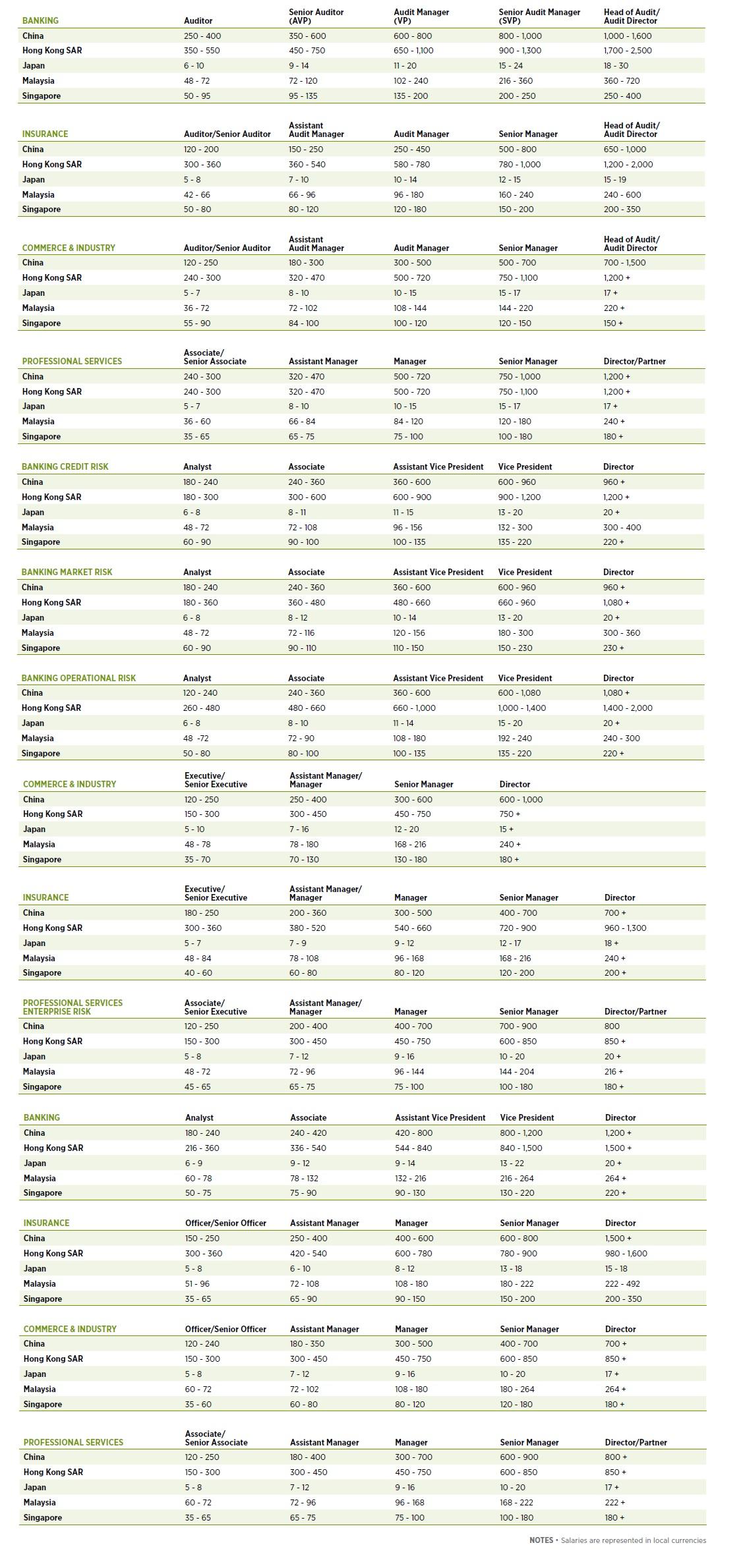
Banking & financial services

Human resources
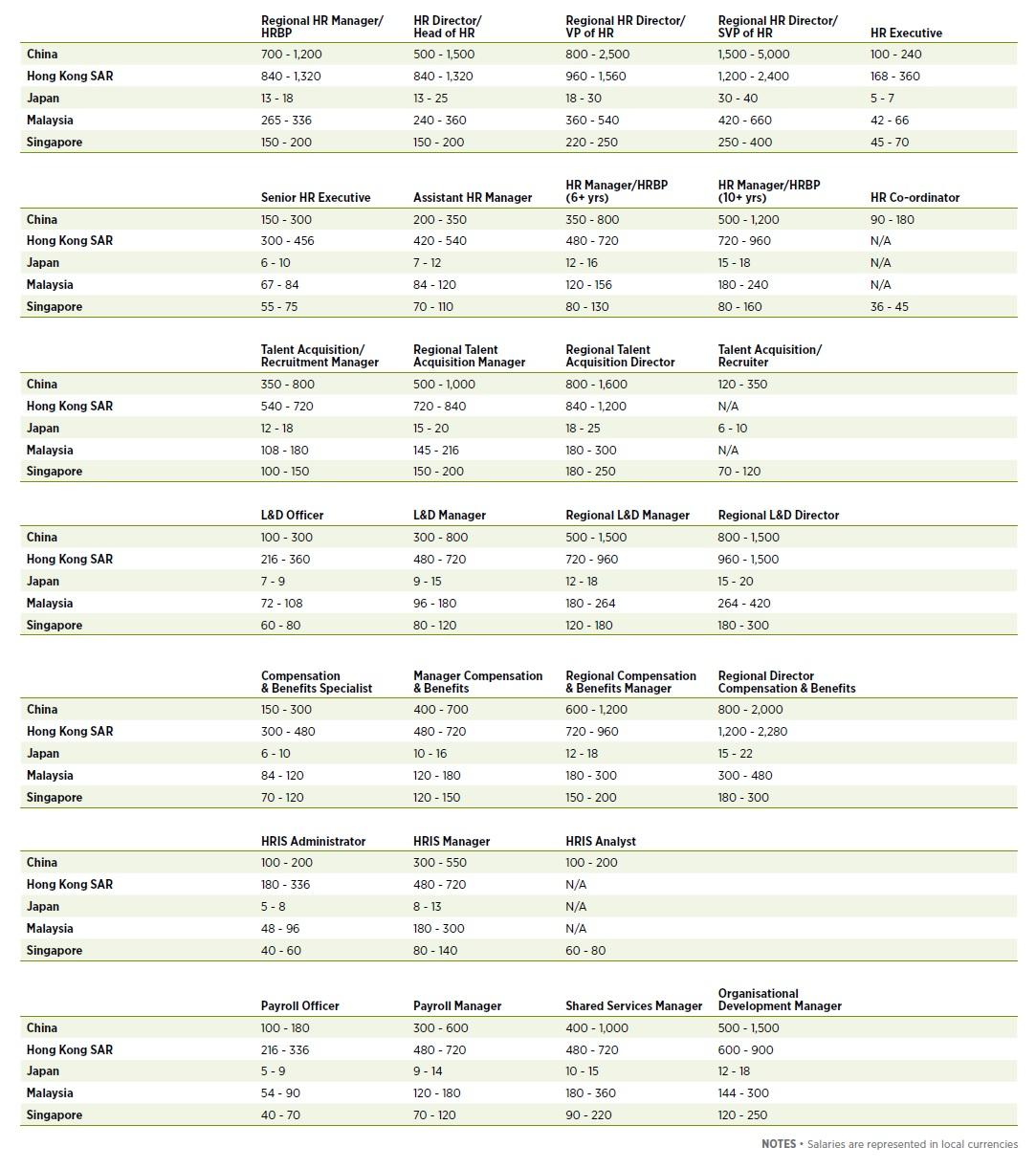
Insurance

Legal
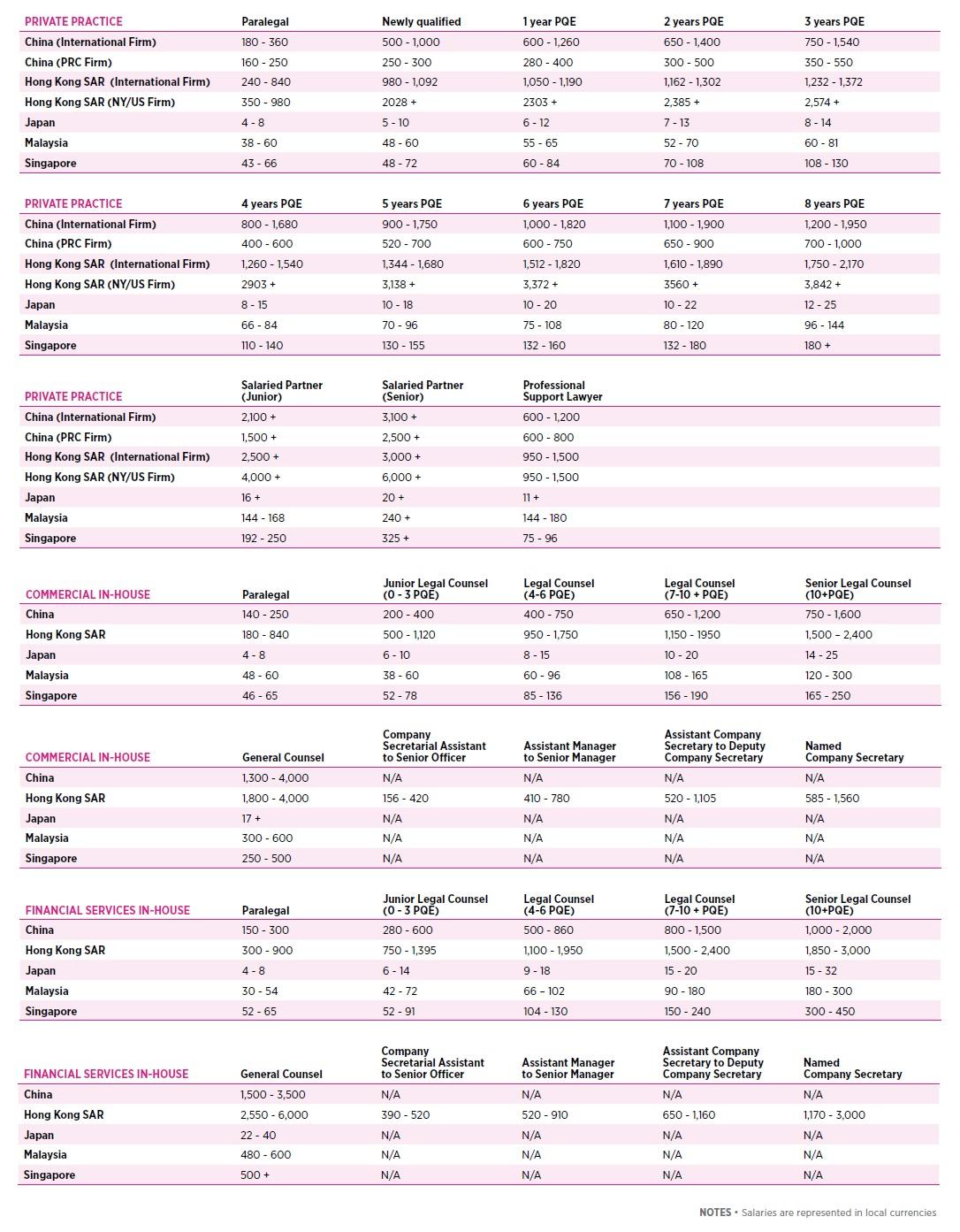
Marketing
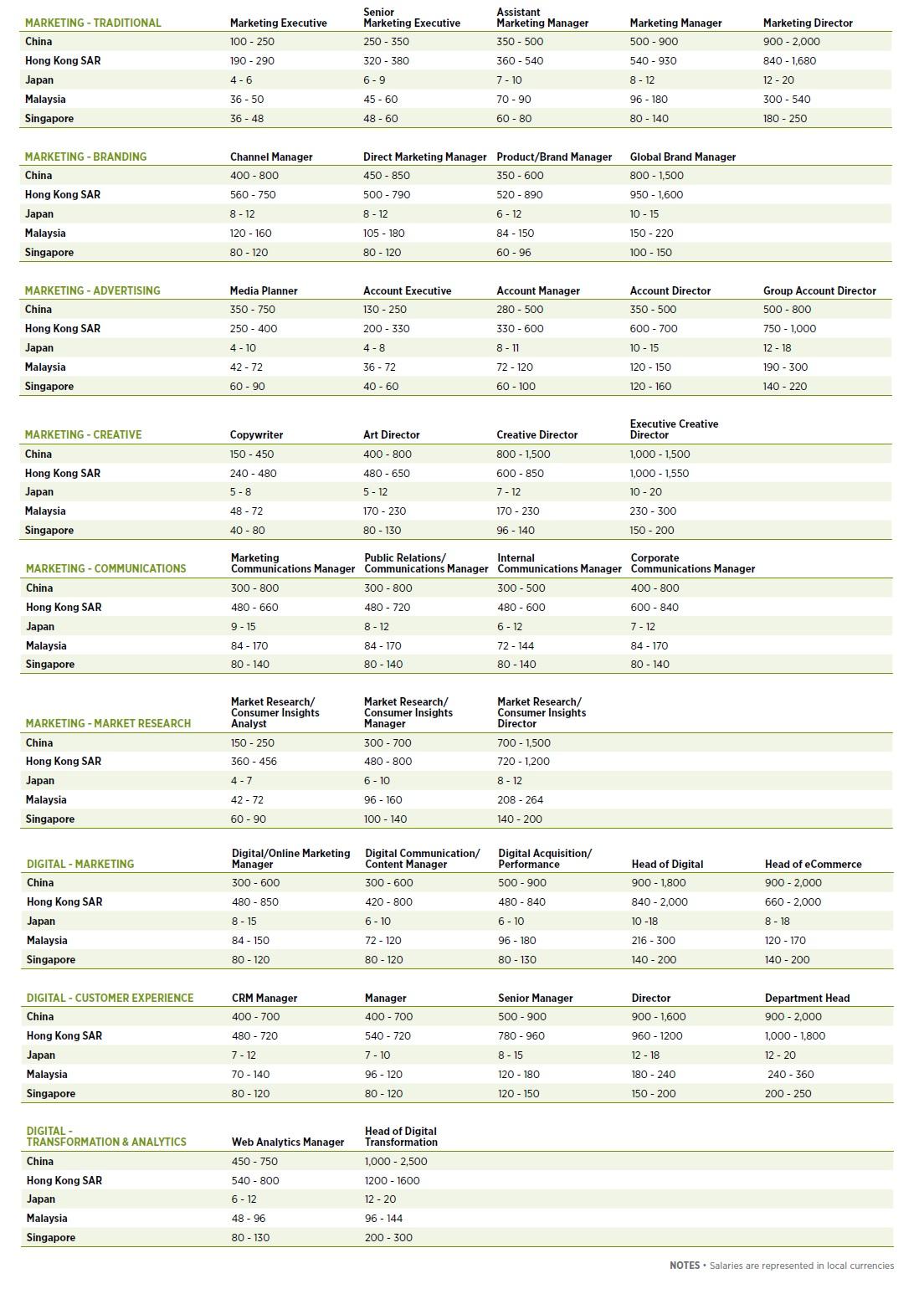
Sales
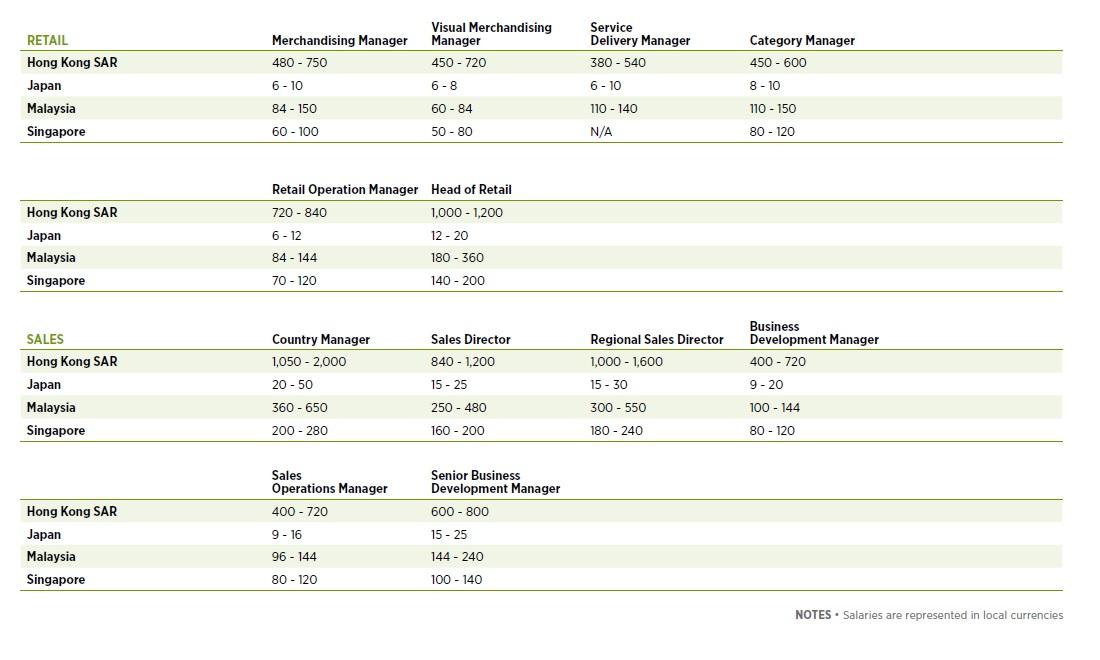
Lead image / 123RF
All charts / Hays' 2022 Hays Asia Salary Guide
Follow us on Telegram and on Instagram @humanresourcesonline for all the latest HR and manpower news from around the region!
share on


